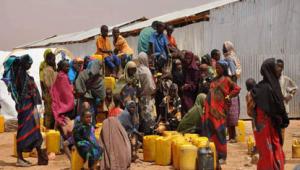The Washington-based development bank found in its annual assessment of 38 countries that they had made little headway on improving their policy and institutional frameworks last calendar year.
For the 38 countries assessed – ones that qualify for financial assistance from the International Development Association, which is part of the World Bank - the average ‘Country Policy and Institutional Assessment’ (CPIA) remained unchanged from 2017 at 3.1 on a scale from 0 to 6.
CPIA scores assess how likely a country’s policy and institutional frameworks are to reduce poverty and sustainable growth. They consist of 16 criteria in four areas – economic management, structural policies, policies for social inclusion and equity and public sector management and institutions - on which countries are assessed.
The World Bank said there were improvements in “some areas of social policy” but that “macroeconomic management weakened”.
“The rule of law, accountability and transparency, and the quality of public administration remained major areas that impede the efficient use of public resources across the region,” the bank said in the report out last week.
This year’s report also focused on the countries’ debt management, because the median government debt reached 54.9% of GDP – an 18.5 percentage point increase in five years.
The number of countries in or at high risk of debt distress increased in 2018.
Albert Zeufack, chief economist for Africa at the World Bank, said: “Some African countries are at risk of mortgaging their people’s futures in favour of today’s consumption.
“When countries spend most of their revenue servicing debt, fewer resources are left for education, health, and critical services for their people. This stops progress in its tracks.”
Where policies for social inclusion strengthened included in gender equality, health and education.
Senior economist and lead author of the report Gerard Kambou said: “Improvements in social inclusion and service delivery have historically been crucial elements of countries’ transitions out of fragility, so even modest steps count.
“African countries, fragile and non-fragile, need to keep the focus on gender, education, health, climate, and governance issues alongside macroeconomic management if they want to see true and lasting progress.”
But poor performance in other areas meant per capita income growth remained stagnant, and poverty headcount continued to be “elevated”.
As well as calling for the strengthening of debt management systems, the report also recommended reforming business regulations, which the bank hoped would lead to a stronger private sector and improved access to electricity. It also suggested “sustained efforts” to improve domestic revenue mobilisation.
Domestic tax yields have declined in many countries – the result of widespread exemptions and low compliance, the bank noted.
The team behind the report hopes to hold discussions on this year’s results and recommendations in several African countries in September.













